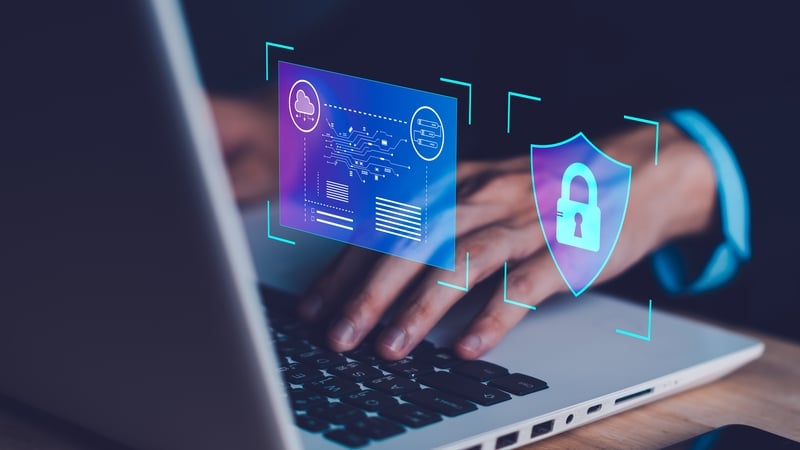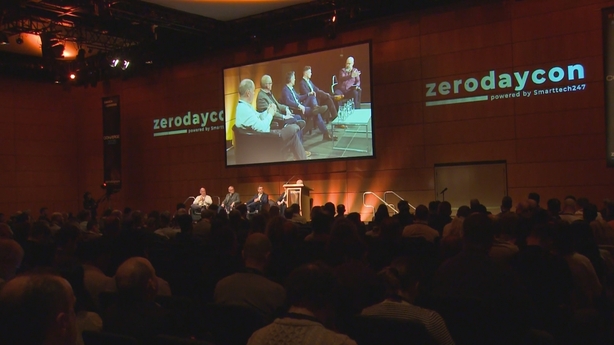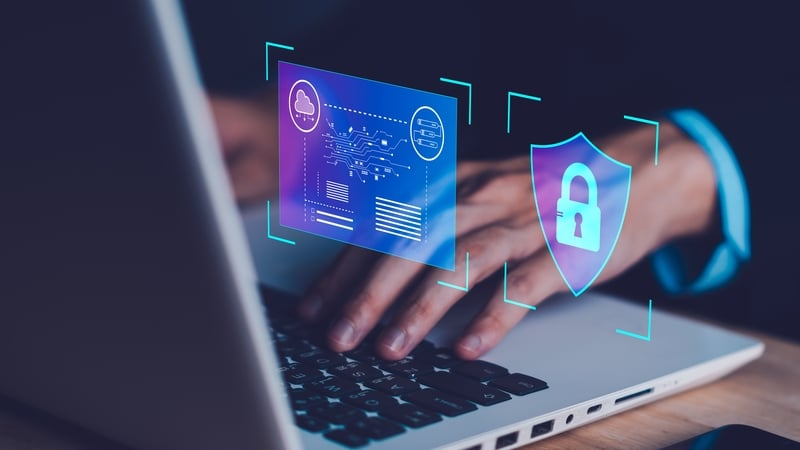Cyber attacks increased by 30% a year in last five years, conference hears
Updated / Tuesday, 11 Mar 2025 16:54

Cyber attacks have increased by an average of 30% year on year over the last five years, a cybersecurity conference in Dublin has heard.
The Zero Day Con at the Convention Centre also heard that artificial intelligence is shaping the threat landscape when it comes to cyber attacks.
Raluca Saceanu, conference organiser and CEO of Smarttech247, said businesses are spending about 8% more on cybersecurity each year.
“The problem that we’re seeing is that AI is now shaping the threat landscape,” she said.
We need your consent to load this comcast-player contentWe use comcast-player to manage extra content that can set cookies on your device and collect data about your activity. Please review their details and accept them to load the content.Manage Preferences
“Phishing is continuing to grow and cyber criminals are expanding their operations extensively … the barrier to entry is now so low thanks to AI. So anyone can become a cyber criminal.”
Ms Saceanu said cybersecurity is something that affects everyone.
The HSE’s Chief Information security officer, Neal Mullen, said the organisation experienced a devastating cyber attack in 2021.
The HSE was targeted by a major ransomware attack in May of that year, which caused widespread disruption and saw information held on HSE computer systems illegally accessed and copied.
Mr Mullen told the conference’s 600 delegates that lessons had been learnt from the experience and the HSE was now far better prepared.

However, he warned against complacency.
“Cyber attacks are changing weekly and becoming more and more advanced,” Mr Mullen said.
“So the approach that we’re taking is delivering consistent and risk-based approach so that we’re not overspending unnecessarily and we’re delivering a robust response capability.
“So if the event happens again – and it will happen again – we can react to it quickly, contain the situation and limit the impact to the organisation.”
Gina McIntyre, CEO of the Special EU Programmes Body (SEUPB), experienced a ransomware attack on the organisation in 2020. The organisation manages EU funding programmes within Northern Ireland.
“It was an absolute wipeout because they had encrypted all the data, they had destroyed all the backups and because there had been nobody in for three months, because of Covid, all our normal weekly backups taken off site hadn’t happened,” she said.
“So it was like coming home to know that your house has been burgled and you have to enter it barefoot and blindfold and you have no idea what you’re going to find.”
Ms McIntyre says it took the SEUPB five weeks to recover from the attack and says she is eager to stress to businesses the importance of having standalone systems.
Delegates heard about the importance of both cyber crime awareness and having a consistent approach to security when it comes to protecting both business and ordinary consumers.




